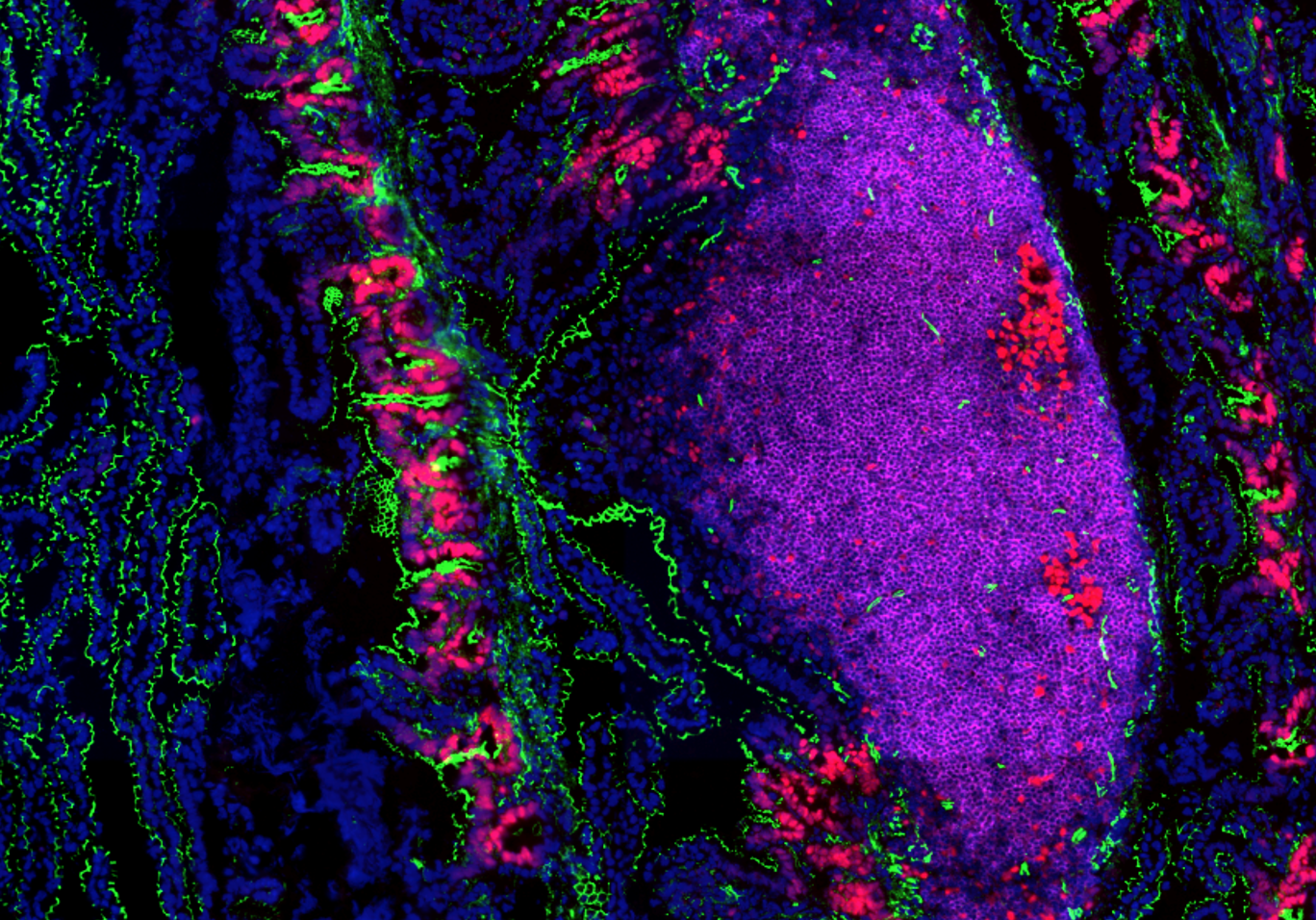Share
“MKD can be a devastating genetic disorder in children and we know very little about the underlying disease process – this research has provided vital new insights into the cause of inflammatory bowel disease in MKD as well as opportunities to develop new and better approaches to overcome it”
– Prof Mike Rogers
This project focused on a potentially fatal genetic disorder, MKD, that first appears in early infancy and causes bowel inflammation. The disease is very poorly understood, largely because of the lack of laboratory models.
To address this, Prof Michael Rogers, A/Prof Mark Danta and Dr Marcia Munoz have made the first genetic mouse models of MKD and found that they have a “leaky” intestine.

Revolutionising the treatment of bowel inflammation in a childhood auto inflammatory disease
Using these mice they sought to discover what makes the gut leaky, whether the bacteria in the intestine are different to normal mice, and whether the inflammation could be overcome with a dietary supplement.
Using state-of-the-art approaches to image live tissue, they found that the gut tissue in mice was disrupted in patchy lesions, similar to MKD patients. These areas are the likely cause of the gut “leakiness”. They analysed the composition of the bacteria in the gut and found several type of “good” bacteria were less abundant and several species of “bad” bacteria were more abundant.
Finally, they identified a lipid supplement that could completely overcome the genetic defect in cultured MKD cells in the laboratory and developed a way of making it more soluble for testing in animals.
These studies have paved the way for new international collaborations and created opportunities to seek further research funding. Studies are ongoing to test the lipid supplement in mice, which could revolutionise the understanding and treatment of MKD.
We acknowledge the Traditional Owners of this country, including the Gadigal people of the Eora nation – whose lands on which this Clinic is built, and recognise their continuing connection to land, waters, and culture. We pay our respects to their Elders’s past, present and emerging.